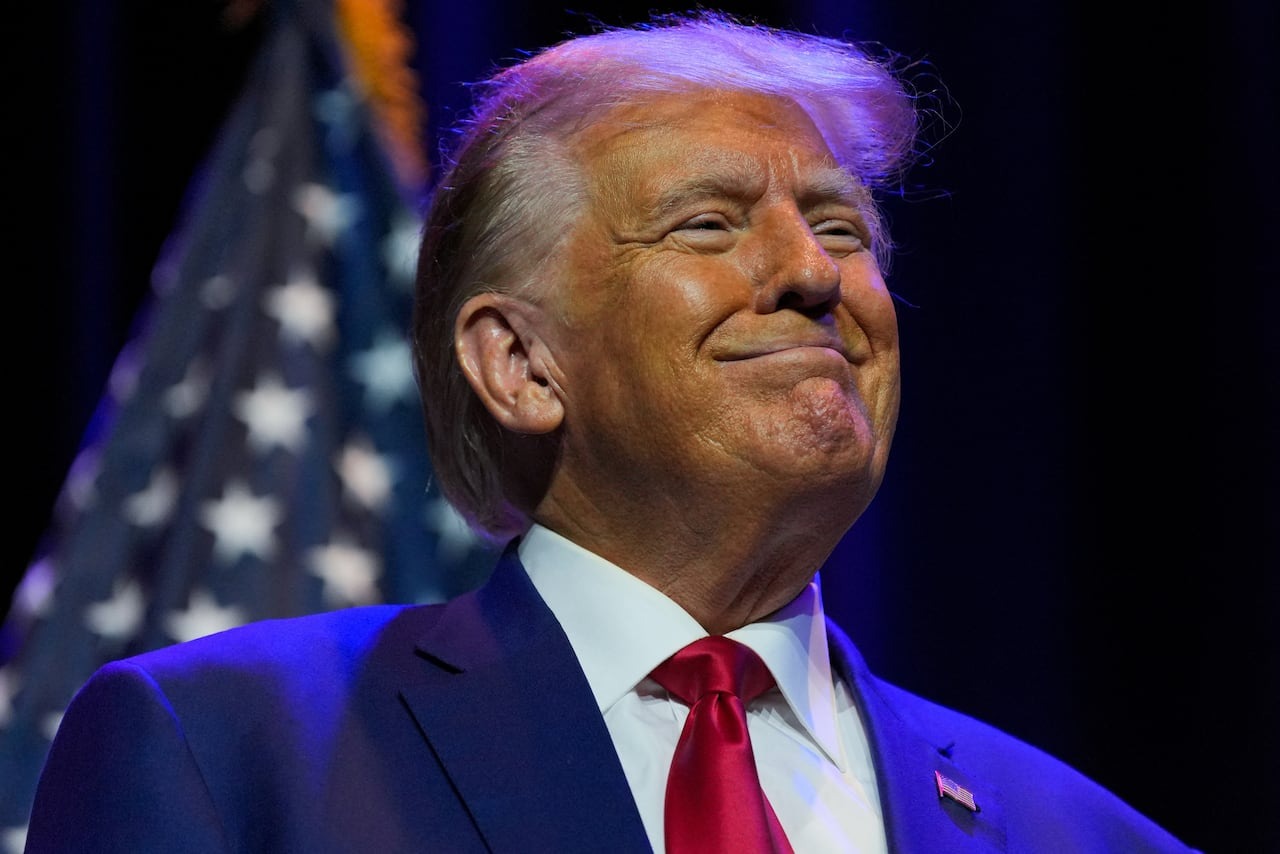South Dakota Governor Kristi Noem did not hold back in her criticism of the hush money case brought against former President Trump during an appearance on CNN’s “State of the Union.” Describing the case as “ridiculous,” she accused Democrats of exploiting the judicial system and employing activist judges to advance their political agenda.
Noem’s strong defense of Trump reflects her unwavering support for the former president, who remains a highly influential figure within the Republican Party. By condemning the timing of the charges, she echoed sentiments expressed by Trump and his allies, who have consistently characterized the case as politically motivated.

In her remarks, Noem questioned why prosecutors had waited years to bring charges against Trump, suggesting that the timing of the case—amidst a presidential election—was suspicious.
She argued that if authorities had genuine concerns about Trump’s conduct, they should have pursued legal action earlier, rather than conveniently coinciding with his campaign for a return to the White House.
The governor’s assertion that the case’s timing reveals its political nature underscores the deeply polarized landscape of American politics. With Trump’s continued influence within the Republican Party and the ongoing debate over the legitimacy of his presidency, issues surrounding his legal battles have become highly contentious and divisive.
Noem’s alignment with Trump on this matter further solidifies her status as a key figure within the GOP and a potential ally for the former president in future political endeavors.
Speculation about her potential role as a running mate in future presidential campaigns adds another layer of intrigue to her comments, as they underscore her loyalty to Trump and her willingness to defend him against perceived political attacks.

The hush money case itself revolves around allegations of falsifying business records related to payments made to Trump’s former lawyer, Michael Cohen, to silence adult film star Stormy Daniels about an alleged affair prior to the 2016 election.
The case’s importance extends beyond its legal implications, serving as a focal point for broader debates about political corruption, judicial independence, and the rule of law in the United States.
Noem’s impassioned defense of Trump and her critique of the hush money case highlight the deep divisions within American politics and the enduring influence of Trump’s presidency on the national stage. As the case reveals, it is likely to remain a subject of intense scrutiny and debate, shaping the trajectory of American politics for years to come.


